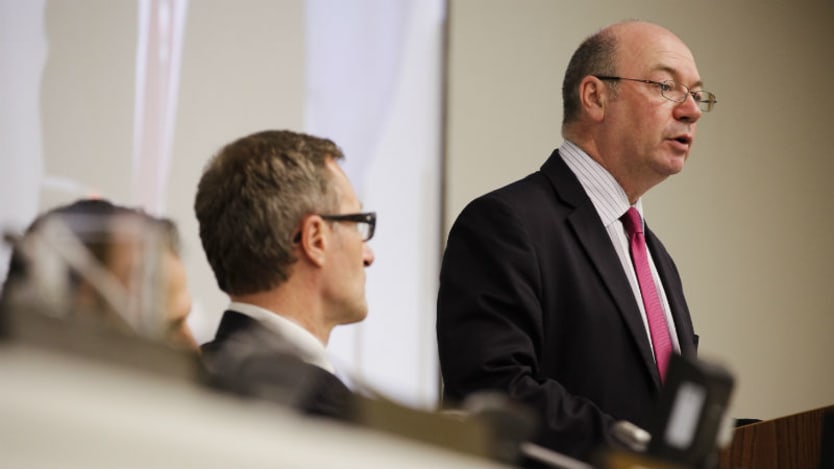
LONDON — The Bashar al-Assad government in Syria has weaponized aid by limiting the flow of food and medical assistance to more than half a million Syrians, said Alistair Burt, Britain’s co-minister for international development and the Foreign and Commonwealth Office, in a statement released on Thursday.
The governments of Russia, Turkey, and Iran declared the region of Eastern Ghouta — only 10 kilometers from the capital Damascus — a “de-escalation zone” in September, but Burt said that in reality, violence has reached its peak and humanitarian access has never been more restricted in the region.
Over the past three months, Burt said the humanitarian situation has “rapidly deteriorated.”
“The Assad regime has made aid a weapon of war by restricting humanitarian access to the besieged population,” Burt said. “Because of these restrictions and increased violence, the humanitarian situation has rapidly deteriorated over the last three months.”
“We urgently call on all parties to the conflict to facilitate humanitarian access, allow for emergency medical evacuations, and take all feasible measures to protect civilians, as required under international humanitarian law,” he added.
Finally, Burt said DFID and the FCO “continue to press” the Assad regime and its backers for unhindered humanitarian access, and “stand ready to deliver the life-saving assistance that is so desperately needed.” Burt said he had also received reports of artillery shelling of schools and hospitals in Eastern Ghouta, a clear violation of international humanitarian and human rights law.
Fran Equiza, UNICEF representative in Syria, said the situation in East Ghouta is “getting worse day by day.”
“The health system is crumbling and schools have now been closed for almost a month,” she said.
According to a UNICEF statement, health workers on the most recent inter-agency aid convoy to the town of Nashabieh in East Ghouta on Nov. 29 described seeing one of the “worst health and nutrition situations since the conflict began in Syria.”
The commercial crossing into East Ghouta — approximately 30 minutes from the capital Damascus — was closed by Assad regime forces on Oct. 3. The area consists of 22 communities, with an estimated population of 400,000 people. East Ghouta is the largest remaining area under siege by the Assad regime.
According to a DFID spokesperson, the Assad regime is preventing the delivery of United Nations and other agencies’ humanitarian assistance by blocking aid convoys, including when the regime has officially approved them. The regime has also attached unacceptable conditions to deliveries, such as reducing the amount of aid and removing medical supplies, according to DFID.
A statement from the agency said an estimated 500 people require medical evacuation from eastern Ghouta to Damascus, including 137 children –- but the regime is not allowing any referrals. Twelve people have died already waiting to be evacuated, including six children, according to the DFID statement.
Read more Devex coverage of the Syrian crisis.


